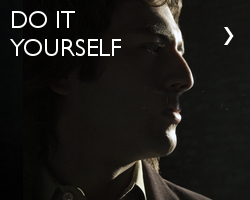Who is EDNA designed for?
The EDNA media device is designed for practitioners of offender rehabilitation and deradicalisation – and for facilitators of preventive social and educational work. The clients may have been engaged in various types of violent extremism and group-focused hatred that are inspired by ideas of personal supremacy. And they may show anti-social and (self-) destructive behavior. EDNA is suitable for intervention settings that follow principles of open-process, self-determined, participative, and narrative work. Less applicable it is with cognitive behaviorist approaches, since these have been found to be largely inefficient in deradicalistion.
What is a narrative interview?
Narrative exchange means that people tell first-hand experiences and actions which they have been personally involved in. Narrative interviewing therefore tends to steer free from inquiring about causal reasons and factual details (why, when, where, what) but rather asks for an individual account and subjectively perceptions (how). Arguments or ideological discussions have little room in narrative exchange. From this also follows that a narrative – i.e. the expression of a personal experience – cannot be refuted or countered. Genuine narratives can only be listened to and personally engaged with in a co-narrative manner. This is why EDNA does not subscribe to notions of ‘counter-narrative’.
Why narrative?
The narrative mode of self-expression differs substantially from giving thoughts or arguments. When we tell, step by step, what we have experienced and somebody attentively listens, it is almost as if we go back in time and revisit the original event itself. This re-encounter may be emotionally intense, relieving and insightful. It will build trust in both oneself and the other. Above all, narrating once experiences has great transformative power. Only through narrating experiences which are of key for us can we achieve lasting personal change – be this in terms of leaving violent extremism and adopting more pro-social and responsible ways of life, or regarding any other sort of individual development.
How is EDNA employed?
EDNA offers a specifically assorted collection of audio passages from interviews which have been held with former extremists/ perpetrators, their family, the victims, practitioners of deradicalising interventions and other relevant voices. These passages may pertain to issues of biography, family history, peer-group, gender, violence/ offenses, and personal experiences during the interventions. Additional information materials are provided. Practitioners may use these passages and materials in their offline face-to-face work with clients – in order to trigger their distancing from violent extremist and hateful attitudes and support their development towards more peaceful, pro-social and empathic attitudes.
In their work the practitioners may focus on entire interviewee profiles or on cross-cutting themes. They may also decide to offer workshops in which the clients produce their own narratives and acquire skills in interviewing and media editing. Similarly, fiction narratives may be used, as movies, novels, or songs/lyrics which are identified by the clients as personally significant narratives. These interviews would focus on the clients viewing/ listening experiences and how they relate to them personally and biographically and with respect to having gotten into violent extremism.





